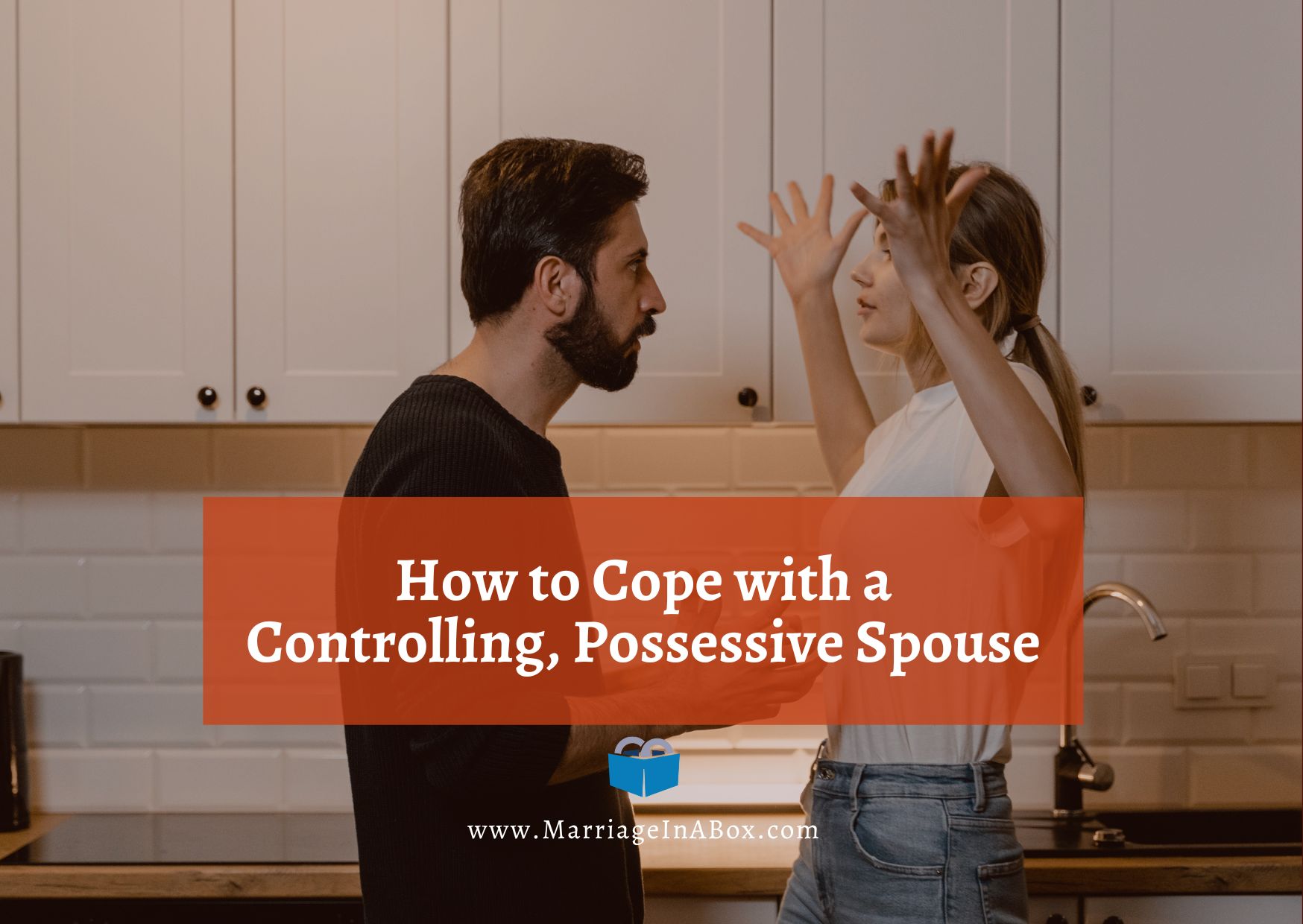How to Cope with a Controlling, Possessive Spouse
Posted on

Controlling people want to assert power or control over another person. They can use manipulation, intimidation, and be overbearing to get their way. The person experiencing controlling behavior can feel fear, anger, despair, embarrassment, or inferiority. Using control can and often becomes abusive. If someone in your life is controlling, it is vital to reach out to supportive friends, family, or a therapist and learn to strengthen your boundaries.
Common Signs of Possessive and Controlling Behavior in Marriage
Sometimes, a controlling person is emotionally manipulative and acts out of insecurity but may not be aggressive; but behaviors can become aggressive. Controlling people may use a variety of tactics; here are some examples of controlling behavior:
• Inflexibility
Controlling people insist that everything needs to be their way and often won't adapt or take no for an answer.
• They Want to Be the Center of Attention
They have a strong need to have the focus on themselves. They often redirect the conversation back to themselves if you talk about your life.
• Isolation from friends and loved ones
A controlling person may seem possessive and unreasonably jealous of others in your life.
• Manipulation and blame shifting
Manipulation is a key component of controlling people because it gives them a sense of power and control. They may use guilt, criticism, belittling, gaslighting, sulking, or threats. Controlling people feel that nothing is their fault and use a technique known as projection to shift blame back to you.
• Disrespect of Boundaries
Boundaries between two people are respected and valued in healthy relationships. For the controlling person, a boundary is a barrier to their need for control.
• Keeping Score
They may keep a mental scorecard and remind you if they have done something for you and will get more than they give.
• Trying to Change You
A controlling person may tell you how to dress or criticize your appearance, ridicule your interests, and convince you to adopt their interests.
• Intimidation
They may use intimidation in several different forms. Someone who talks down to you in front of others or threatens you in a violent or non-violent way is using a form of intimidation.
Causes of Possessive and Controlling Behavior
Some of the factors that can trigger controlling behavior are:
Anxiety: Taking control of situations is a way to cope with stress for some people. Treating anxiety may improve controlling behavior.
Personality Disorder: Some personality disorders may increase the chances of someone using controlling behavior.
Learned Behavior. A person may have learned to control from caregivers who tried to exert power over their partner.
The Impact of Possessive and controlling behavior in a relationship
The desire to control is unhealthy and may cause relationship conflicts, but it's not always abusive. Controlling behavior becomes abusive when threatening and can include degradation and threats leading to domestic violence. Studies show that controlling behavior is associated with more physical aggression or abuse. It may be so constant that you become numb and relent to their demands for peace. Controlling behavior becomes abuse when the other person feels afraid and intimidated.
What to Do if Your Spouse is Possessive and Controlling
● Use open, Honest Communication
● Define controlling, possessive behaviors.
● Set Healthy boundaries.
● Practice Ways to diffuse the situation, such as:
● Quietly walk away to focus attention on their dysfunctional behavior rather than indulging them.
● Create a distraction or change the subject; interrupting them will make it more difficult for them to return to where they left off.
● Counteract with reason.
● Acknowledge their fear of abandonment and the fear that the person will leave them for someone else and discuss it.
Ways to Change Excessive Control in Your Partner
- First the spouse must recognize controlling behaviors and come out of denial.
- Second, upon gaining insight, the one on the receiving end of the control might have damaged trust.
- Third, by first practicing forgiveness toward the partner
- Fourth, the controlled person needs to bring up the issue of fostering mutual respect in the relationship. Respect honors the dignity of the other person and oneself because each is a person, but it doesn't mean accepting all behaviors or requests from the partner. Respect comes from thinking daily about mutual respect by honoring the personhood in one another so that these thoughts become internalized.
Many people have problems with controlling and possessive behaviors in marriage. It is crucial to recognize them and make repairs quickly to work toward utilizing these behaviors less and less. It is also essential for both spouses to be educated about these behaviors and learn interventions and boundaries, as they can damage a marriage. Consider Marriage In a Box for helpful advice and solutions.
Marriage In a Box provides access to tools, techniques, and solutions professional marriage counselors use for relationship issues. Marriage coaching is available on the website. Feel free to check out their kit and sources of information online.
Learn more about our Couples Therapy Exercises Sign up for a free trial of the Marriage In A Box online tracking tool!